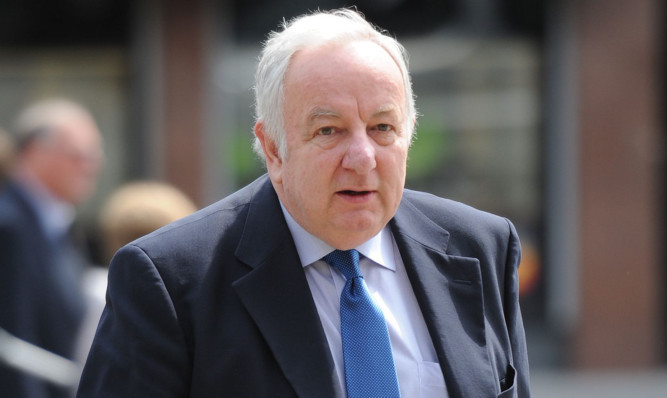Wrong opinion polls could have changed the course of history twice in recent months and the failure demonstrates the need for better regulation, a Labour peer has said.
Lord Foulkes of Cumnock said a “rogue” poll in the Scottish independence referendum sparked panic in the Better Together campaign, producing the so-called vow and the Smith Commission on fresh devolution.
And he told the House of Lords general election polling ensured focus stayed on a possible Labour-SNP deal, rather than issues – suggesting it could have contributed to the unexpected Tory majority.
Lord Foulkes made his remarks as he moved his Regulation of Political Opinion Polling Bill to a second reading but he was opposed by Conservative peers.
Lord Cooper of Windrush, a co-founder of pollster Populus, said the proposed state-backed poll authority “couldn’t and wouldn’t” have stopped mistakes in recent polls and would make it more difficult to identify and fix the errors.
Minister Lord Bridges of Headley said the Bill would serve only to create an “opinion police”, tampering with freedom of speech and damaging democracy.
Lord Foulkes said: “What reinforced to me that accurate polling is such an important issue for our democracy, for the future of our democracy, was the one rogue YouGov poll, held on September 7 2014, that seemed to indicate for the first time in the referendum that the Yes campaign were ahead.
“This caused a widespread panic among all of the politicians in the Better Together campaign and it resulted in the vow on the front page of the Daily Record for even greater devolution of powers to Scotland.
“In light of the actual results of the referendum, it is clear the fear of the Yes victory were unfounded and the nationalists had directly benefited from just one highly inaccurate poll.
“The course of history was changed by that one inaccurate poll.”
The Labour peer added: “There were major policy issues absent as a result of polls from the (general election) campaign – so the results of the election could well have been different if we had focused on those major policy issues.
“So inaccurate polls, as they turned out to be, again appear to have changed the course of history.”
Lord Foulkes said his proposals offered “minimal and independent oversight”. The Bill would create a Political Opinion Polling Regulation Authority.
It would be empowered to set “rules” on polling – which could specify poll methodology and stop polls being published in the run up to an election, if this was deemed necessary.
But Lord Cooper said such a body would restrict innovation. He said: “Of course I accept the recent general election was a serious failure for those of us who produce opinion polls, that try to capture accurately the proportions in which people are supporting different political parties.
“Tried and tested methods suddenly failed to capture accurately a snapshot of how voters were going to vote and what proportions they were going to support the Labour and Conservative parties.
“If we had had the regulatory body you proposed in existence through the last Parliament, we would have no point of reference, no way it would have detected during that five year period that suddenly poll methods which had been accurate has become wrong. It is only after the fact, after they err at an election, we can see that clearly.
“It was a serious failure and the polling industry takes it seriously.”
Lord Cooper outlined the rapid creation of a “full and open inquiry” by the British Polling Council and Market Research Society.
He added: “It is important to remember we have been here before and more important still to remember the lessons of that history. One of the reasons almost everyone assumed they were right was because they had been right for the previous four general elections.
“But those four consecutive successes for the polls came after another humiliating failure in 1992.
“Most, if not all, of the changes adopted by the industry to fix the failure of 1992 and which resulted in the polls being more accurate subsequently would have been less likely if your Bill applied and the regulatory body you propose had existed.
“The lesson from the last time the polls were wrong is we need to define the problem frankly, fully, openly, and then innovate to solve it. The flaw at the heart of this Bill in my opinion is it would obstruct this process not help it.”
Lord Bridges, who won a bet after successfully predicting the election result, said: “This Bill is built on an assumption – an assumption the electorate should not be told what they themselves are thinking during a general election campaign, or at least during parts of it.
“Call me old fashioned but I trust the people. I believe in giving them this information however painful it might be for one party or another.”
He added: “This would be a good case of legislation in haste and we have seen this kind of thing happen before – I for one do not want to see a ‘dangerous pollsters act’.
“The Bill has a strange whiff of George Orwell mixed with Inspector Clouseau about it.
“The opinion police, for that is what these regulators would be, would have unlimited powers – the bill simply lists those presumably deemed important.”
The Bill received a second reading and will be debated further at committee but it is unlikely to become law.
